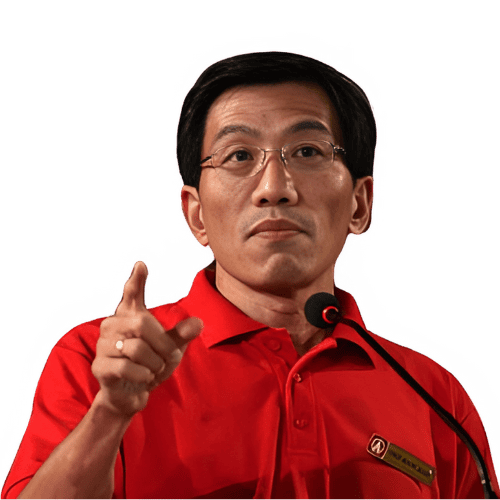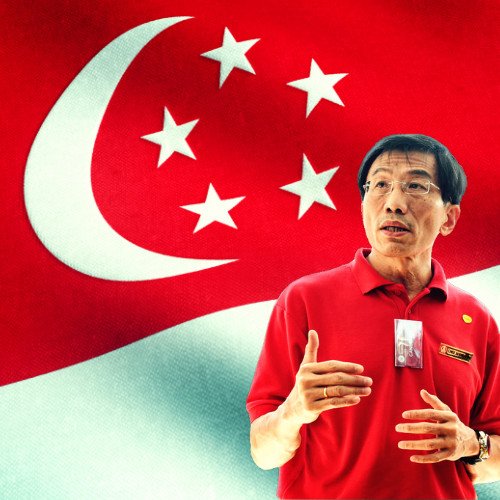People Before Profit: The Struggle for Meaningful Living in Singapore

Reference from 
The Core Principle: People Over Profit
TL;DR: The core principle of the SDP emphasizes prioritizing people over profit. Recent decisions like the NTUC Income sale exemplify significant consequences for social welfare in Singapore. Disparities in ministerial salaries and rising living costs highlight the urgent need for a more equitable society where governance reflects the needs of its citizens. Let’s advocate for compassion and strategy that put people first.
In my journey as a member of the Singapore Democratic Party (SDP), I have come to deeply appreciate the principle that guides our mission: “people before profit, wisdom before wealth, rights before riches.” This isn’t just a catchy phrase; it’s a beacon that illuminates our path toward a future where everyone, regardless of their background, has the opportunity to thrive. It anchors us amidst the complexities of governance, steering our decisions toward the greater good. I can’t help but reflect on the immense significance of maintaining such a moral compass in the political landscape.
Witnessing the shift from this principle has been troubling, especially in a society like Singapore, where the ruling People’s Action Party (PAP) often seems to adopt a philosophy of “profit before people.” The consequences of this inverted priority are increasingly glaring. A stark example is the recent sale of NTUC Income to Allianz, a corporate giant that has led many of us to question the fate of our community’s social welfare. This decision threatens the very foundations of the social mission that NTUC stood for—protecting and serving the common interests of our citizens. Here, one cannot aid but imagine the countless families who rely on access to affordable insurance and services—individuals whose lives hang in the balance of corporate decisions.
I often reflect on the tangible impact this shift has on everyday lives across Singapore. With the influx of foreign labor and the privileged access to property for the wealthy, the cost of living has only spiraled upwards, leaving many locals grappling for stability. We find ourselves straddling the line between economic progress and the genuine well-being of our people. While expanding our economy is vital, it must not come at the expense of our residents’ quality of life.
A clear illustration of this disconnect lies in the alarming salary disparities within our government. Ministers in positions of authority earn staggering salaries—ranging from one hundred to nearly two hundred thousand dollars a month—while half of our citizens are caught in a web of financial anxiety, navigating through a reality where two thousand to three thousand dollars each month barely suffices. It pains me to realize that there are individuals, like a gentleman I met scavenging for scraps, who can only dream of such financial security. He survives on a mere ten to twelve dollars a day, symbolizing many others who find themselves lost in a system that favors wealth accumulation over individual welfare.
The disjunction between their stark reality and the lives led by our ministers—like one who recently sold a home for fifty million dollars—epitomizes the widening chasm between governance and genuine human experiences. This situation compels us to ask: how did we arrive at this juncture, where policy decisions reflect an understanding of economics divorced from the real problems faced daily by so many?
What’s alarming is how this financial mindset permeates our basic necessities. Rising costs in essential services cast a long shadow on our citizenry. The price hikes in water, gas, and electricity seem relentless. Singaporeans find themselves in precarious circumstances as they struggle to keep up with the lifestyle inflation encroaching upon them. Yet, the government continues to raise prices of public transport, like the recent ten-cent increase in bus and MRT fares. For many of us, commuting becomes another strain on already stretched budgets.
Amid these challenges, I often observe how politicians engage in performative gestures during election periods—gracing local coffee shops, and pretending to connect with the everyday citizen. However, I encourage my fellow Singaporeans not to fall prey to these distractions. A government that wishes to fulfill its duties should embody the principle of “people before profit.” This is the cornerstone of creating a society that truly serves its citizens, prioritizes their needs, and inspires hope.
Standing firm in my belief, I am committed to advocating for a more compassionate and equitable society where governance reflects genuine care for its people. On the weekend of September 22nd, I invite my fellow citizens to join me at Ang Mo Kio Hub, near block 702. Together, let’s take a step toward bridging this gap between wealth and welfare—by sharing our stories, discussing our hopes, and supporting our movement for social equity. We can create a future where community well-being comes first, and the people of Singapore thrive collectively.
“A party will lead the country down a very wrong path if guided by profit over people.”
As we move forward, let’s remember that true progress isn’t just measured by economic metrics but by the meaningful lives we touch. Together, we can weave a narrative where compassion reigns supreme in governance, and people always take precedence.
Until our paths cross again, let’s unite our voices and actions in pursuit of a brighter tomorrow—where justice prevails, and every citizen’s well-being is prioritized over mere profit margins.

